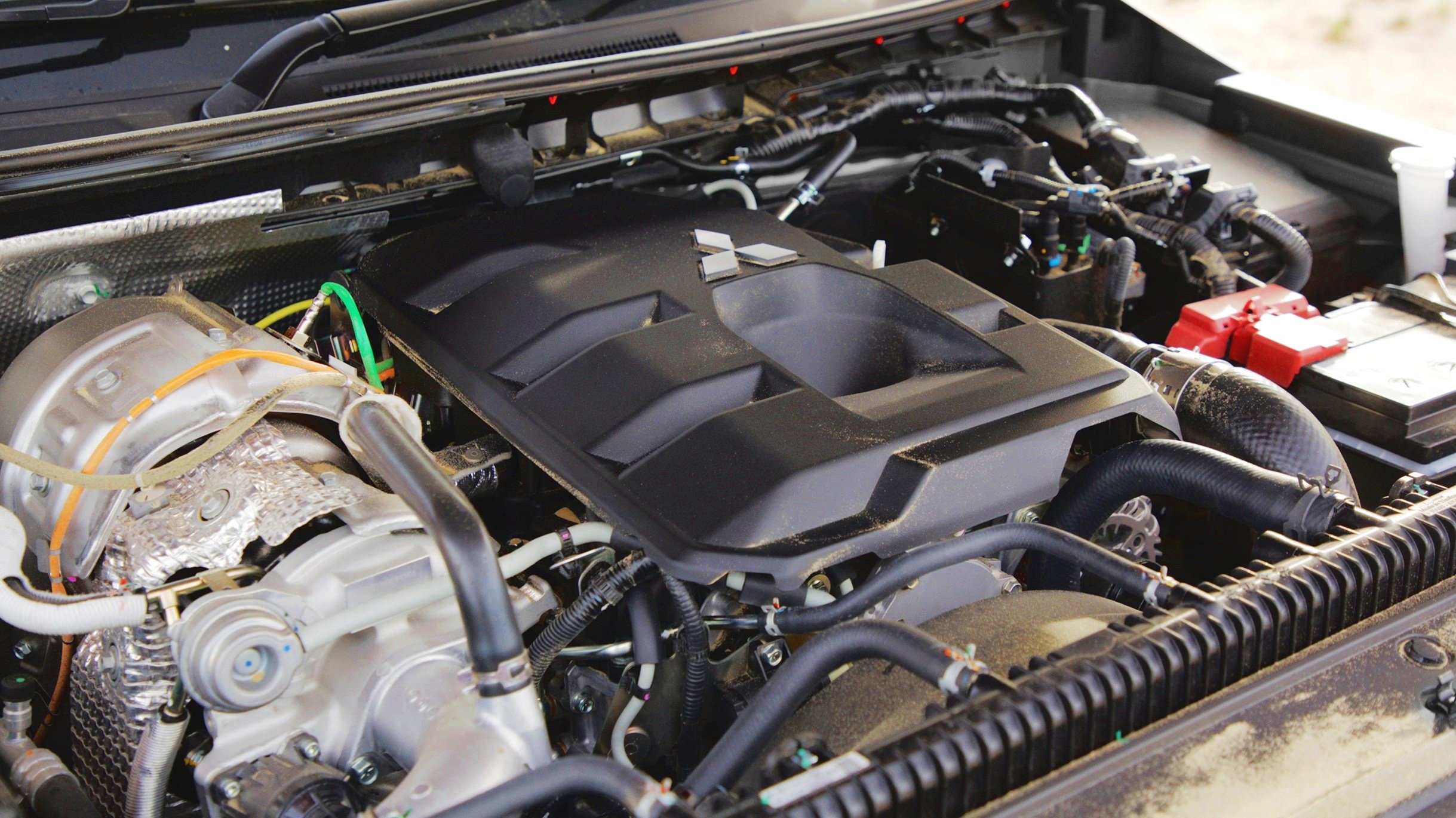Six Reasons Why Diesel Beats Petrol Today
Would you buy a diesel car? Or a diesel SUV, van, or ute? Plenty of Australia's one million (ish) new vehicle buyers never even consider buying a diesel.
The growth in diesel vehicle sales has been very strong, for the past five to 10 years now. Something's certainly going on, so maybe we should find out what.
Diesel engines have grown up (possibly while you weren't looking) and today they're a better bet than the petrol equivalent - for a host of reasons.
These are the top six of those.
1. Better real-world performance
OK - we're not talking about setting the lap record at Bathurst here. We're talking about real-world driving. The salient difference being that, in racing you rev the tits off the engine continuously - it you're not bouncing that needle off the rev limiter, you're doing something wrong.
This is because peak power occurs at high revs. (Power is a product of torque and revs, so one of the ways to make more power is just to spin the engine faster, provided it can continue to deliver solid torque outputs.)
But in the real world, people like you and me drive at 2000-3000rpm all the time, or at least most of the time. And this is where diesel engines shine. In fact, diesel engines make two or three times the power of their petrol counterparts at about 2000rpm - which is why they feel so unbelievably strong in traffic.
Example
Jeep Grand Cherokee SRT8 - not as grunty as the 3.0-litre diesel, at least not at 2000rpm, where the majority of driving takes place
The Jeep Grand Cherokee is available with a 3.0-litre turbodiesel engine (570Nm at 2000rpm and 184kW at 4000rpm). It's also available as a brain-bending SRT-8 with a 6.4-litre Hemi V8 (624Nm at 4100rpm and 344kW at 6250rpm).
I certainly know which one I'd like to be in, to set the lap record. It's a no-brainer. The SRT-8 has almost twice the power. Rev its ring out, and it will murder the diesel. Great, if you drive like that.
But how about if you don't? How about if you drive more often than not at 2000rpm? The way engines produce torque, it's pretty linear except in the upper-rpm reaches. So the SRT-8's 624Nm at 4000rpm will be more like 300Nm at 2000rpm - about half what the diesel delivers at those revs.
So if you want strong, low-rpm performance (like most drivers) then the diesel will over-deliver, compared with the SRT-8.
2. Better fuel economy
The diesel will always beat the petrol on economy. This is because diesel engines are fundamentally more fuel efficient. In engineering there's 'fundamentals' and there's 'technology'. Technology controls the combustion process - you get piezoelectric injectors for precise fuel delivery direct to the combustion chamber. You get variable geometry turbos for precise boost control. You get a 2000-atmosphere fuel rail to aid and abet the injectors in their mission. That's technology - but it doesn't deliver the extra economy.
Fundamentals deliver the economy - the tech is just a support act. And on fundamentals diesel can handle more compression than petrol. That means you can have a higher compression ratio in a diesel - to squeeze the fuel-air mixture even harder than in a petrol engine. And when the mixture burns, it then expands through a greater volumetric range before farting itself out the exhaust. And that greater expansion delivers more thermodynamic efficiency, the upshot of which is:
Diesel delivers 30-40 per cent better fuel economy, compared with an equivalent petrol option. Every time.
3. You get part of the price premium back
Some people become obsessed with the break-even point: the distance you have to drive to save enough money by virtue of better fuel efficiency to pay for the extra up-front cash the diesel engine/driveline cost you in the first place.
This is a dud analysis, because although diesel engines cost more up front, they sell for more when you sell the car at replacement time. In other words, the next owner hands you part of that price premium back.
Example: 2009 Hyundai i30 CW (wagon)
1.6 diesel auto
- Cost $29,890
- Priv. sale today: $13,950
- Retained value: 47%
2.0 petrol auto
- Cost $27,390
- Priv. sale today: $12,750
- Retained value: 46%
You can see how the ownership economics are about the same - retained value as a percentage of acquisition cost is pretty similar. Obviously the diesel cost the owner $2500 more up front, and it's easy to focus on that. But at sale time, the diesel owner also gets more back - his or her car is worth $1200 more (all other things about the car being equal). So, really, the diesel cost $1300 extra over five years - that's $260 a year, or $5.00 a week, minus the fuel saving. And the real-world performance was better, too.
4. Greater fuel range
It's the flipside of better fuel economy - you just don't have to fill up as often. It means less downtime in day-to-day driving - 30 per cent fewer emotionally uplifting exchanges at the servo's EFTPOS terminal. In regional areas it means you'll - probably - be able to make it to the next available refuelling point, if the one you had aimed for is closed.
5. World-champion towing capability
Massive torque at 2000rpm was made for towing. You're driving at 80km/h. You get to a hill. You're doing 2000rpm. You mash the throttle (and, yeah, I know diesels don't have actual throttles). A massive wall of torque kicks in, without all the mad ratio shunting that goes on in a petrol engine to get it up to 4000rpm, where its (anorexic) peak torque starts to kick in.
6. It's not as dangerous
If you want to blow yourself up, petrol is an ideal substance to use. If blowing yourself up is part of the plan: a) seek professional help and b) look for a fuel with a nice, low flashpoint.
Flashpoint is a temperature. It's the lowest temperature that a fuel will vaporise spontaneously to form a flammable or explosive mixture in air. In other words, if the mercury is above the flashpoint, the fuel evaporates into the air, forms a flammable mixture, looks for a spark, and goes BOOM!
Petrol has a flashpoint of -43 degrees C (43 below zero). So, if you're not above or below the Arctic or Antarctic circles, respectively, chances are you're in a place where petrol is a Molotov cocktail looking for a place to happen. This is why fires at petrol stations, captured on CCTV, always happen at petrol pumps. The reason it's never at diesel pumps is below.
Diesel has a flashpoint of 52 degrees C. So, if you're un Dubai in July - possible problem. Everywhere else, it's pretty hard (but not impossible) to blow yourself up with diesel. Diesel just doesn't want to evaporate and burn.













